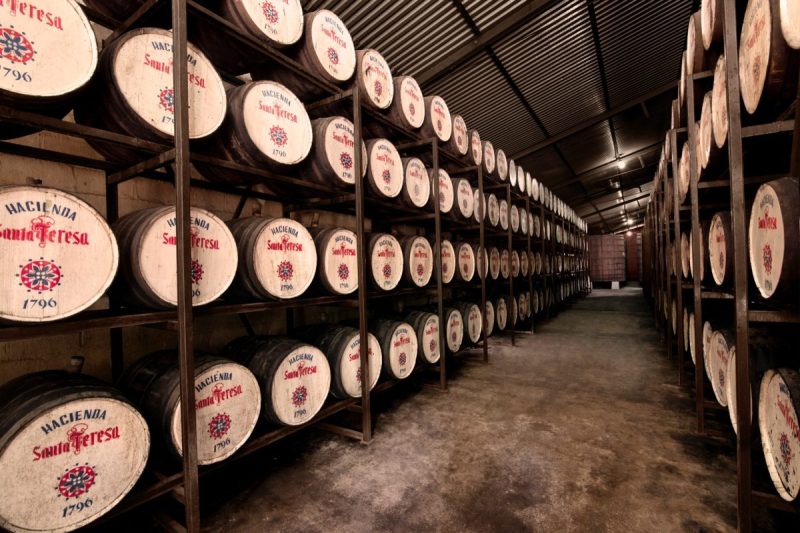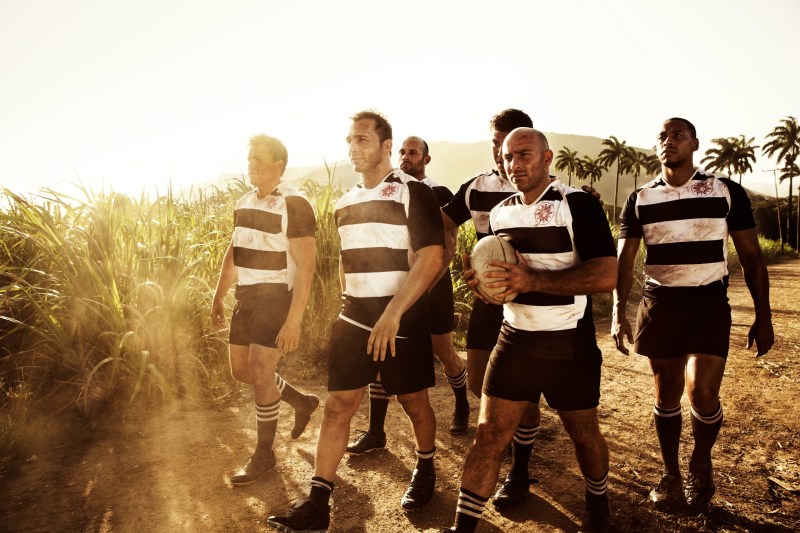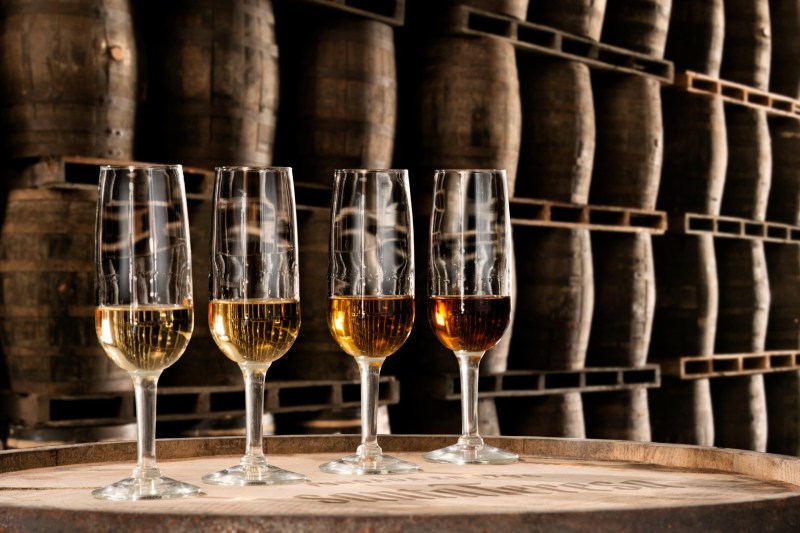
It’s a strange story, one that prompted Venezuelan rum brand Santa Teresa 1796 to give back to the community in a big way. The tale involves an attempted break-in, rugby, estate rum, and a flourishing program that gives locals a second chance by way of sport.
Related Reading
- Brands Giving Back
- The 7 Best Rums to Enjoy Neat
- Rum 101: An Enthusiast’s Guide to Understanding the Different Types of Rum
Back in 2003 in the Revenga region of Venezuela, a local gang ambushed a guard at the Santa Teresa 1796 headquarters. The burglars were apprehended but instead of being handed off to the local authorities, the distillery offered an alternative: Work off the offense. The gang took on various roles at the hacienda and Santa Teresa CEO, Alberto Vollmer, taught them to play his favorite sport of rugby. Project Alcatraz was born.
Vollmer picked up a love for rugby while studying in France and ultimately founded the first team in Venezuela while an engineering student at the Universidad Metropolitana. The game itself has its perks but it’s the many other related positives that he and his team have really come to adore—things like discipline, respect, and teamwork.
Since then, Project Alcatraz has become something of a national phenomenon. It continues to recruit local gang members and would-be criminals and offers a more productive outlet. It is estimated that the program has reduced homicide rates in Revenga by a whopping 90%. Vollmer and his team have created rugby squads in facilities all over the country and taught the soccer-obsessed locals how to play the physical English game.
“Project Alcatraz is the heart and soul of Santa Teresa,” says Andrés Chumaceiro, director of business of Santa Teresa 1796. We’re so inspired by the men and women—whom we refer to as the ‘Alcatraces’—who we’ve rehabilitated and reinserted back into society through rugby, which builds trust, confidence, and sportsmanship, and through on-the-job training, which gets them back on their feet and provides them with a second chance.”
The brand runs every aspect of the program, from funding and staff training to community outreach and putting on the rugby matches themselves. “Our goal through Project Alcatraz is to smile back at adversity,” Chumaceiro adds.

According to Chumaceiro, the program has helped hundreds of young Venezuelan men and thousands of at-risk youths from the area. Harvard Business School and scores of business schools in Latin America have used Project Alcatraz as a case study for conflict resolution. Nations like Argentina, inspired by the ability of sport to do good in the community, have initiated their own leagues. The program has garnered a number of accolades, including Best Project of Social Inclusion from the UK’s Beyond Sport.
It’s not just a boys club, by the way. In the last two years, Project Alcatraz has expanded to a dozen female penitentiary centers in Venezuela. Impressively, the program has spawned rugby leagues in half of all the penitentiaries in the nation. Some of the success stories are truly remarkable “We live rugby beyond its practice in the field,” Chumaceiro says. “Rugby is part of our culture through its values and everyone in the organization promotes them.”
For instance, Chumaceiro says the program worked with “gang number eleven,” one of the most prominent from the dangerous town of Sabaneta. He says in 2018, one of the gang members took the life of a Santa Teresa security guard. Instead of doing serious time, the perpetrator was brought into Project Alcatraz. Since then, the head of the gang has set up a company to distribute Santa Teresa. A fellow gang member, Chumaceiro says, is currently in training to become a brand ambassador, learning to mix world-class drinks and speak English on top of Spanish. It’s an incredible example of humility and creative conflict resolution from a big regional drinks company.

Oh, and let’s not forget about the product. Santa Teresa specializes in estate rum crafted from the Aragua Valley. It is solera in style, made of blended vintages. The resident sugarcane dates back to the late 1700s while the first rum was produced in 1830 by Vollmer’s ancestors. The resulting rum is smooth and balanced, pleasant to sip on its own, or work into cocktails like a Mojito or Rum Old Fashioned.
What’s next for the brand and its lauded Project Alcatraz? Chumaceiro says he’d like the program to be implemented in every penitentiary in the country. He hopes it will keep expanding among women and that more and more gang members give up their old ways for Project Alcatraz. “Our dream is to have a full production line manned by Alcatraces and to also have them preparing cocktails for the best bars in the world,” he says.
Giving back runs rampant at Santa Teresa. The brand also runs Casas Blancas, a project launched in 2012 that has created more than 400 homes for Revenga residents. Why do all this? Chumaceiro says it’s all about being human. We like to believe that brands have souls,” he says. “After all, they are built by human beings. For this reason, we encourage brands to create and support social platforms and their local communities.”
Editors' Recommendations
- Buffalo Trace is Supporting 5 Charities and Giving Away Bottles
- Our Legacy Harvested Is Diversifying the Wine Scene
- Here’s How the Sierra Nevada Brewing Company Gives Back
- How Hood River Distillers is Giving Back to the Environment
- How Harlem Hops, a Craft Beer Bar, is Giving Back to Harlem Students



